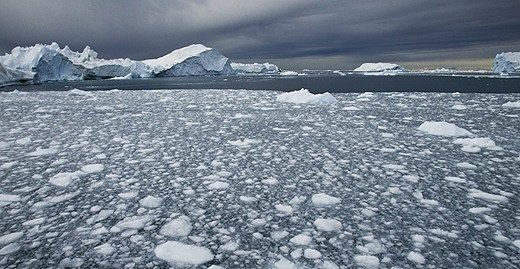Sweden not doing enough for Arctic: Greenpeace
 Sweden is half-way through its chairmanship of the Arctic Council and is getting ready to hand over to Canada. But has the country done enough to push for environmental protection in the Arctic?
Sweden is half-way through its chairmanship of the Arctic Council and is getting ready to hand over to Canada. But has the country done enough to push for environmental protection in the Arctic?
Therese Jacobson, an eco-toxicologist and Arctic campaigner at Greenpeace, is not impressed with Sweden’s efforts.
“We had hoped that Sweden would have raised the issue of climate change and what the Arctic states need to do to reduce their own emissions of greenhouse gases,” she told Radio Sweden.
“We have seen initiatives on short-lived climate forces, but when it comes to carbon dioxide – the big one – we haven’t seen anything from the Swedish chairmanship.”
According to Jacobson, Sweden has not done enough to convince member states to commit to renewable energy policies and to set reasonable targets for carbon emissions reduction.
However Swedish Foreign Minister, Carl Bildt, says the country has been successful in putting climate change on the agenda and in raising awareness of the issue on a global stage.
At a joint press conference with Canada’s Conservative Minister of Health, Leona Aglukkaq, Bildt said that Sweden has been “trying to be more vocal on the global scene when it comes to the fact that climate change is happening twice as fast in the Arctic as anywhere else”.
“That has been to some extent successful”, he said.
“That awareness is now far greater in the global debate… Then of course that needs to translate into political action, which takes somewhat longer time, but I think we have made progress.”
The Arctic Council is an intergovernmental forum made up of eight countries with territories in the Arctic: Canada, Denmark, Norway, Finland, Iceland, Russia, the US – and Sweden.
The chair nation’s role is to create a platform for dialogue and cooperation between the members but it has no judicial powers.
Formed 16 years ago in Ottawa, the Council will, as Carl Bildt put it, “come full circle” next year as the chairmanship returns to Canada.
But Canada has drawn heavy criticism from greens for pulling out of the Kyoto Protocol so is it committed to mitigating climate change?
“We are seeing a change in Canada in terms of what we are achieving,” said Leona Aglukkaq.
“We believe that emitters should also have targets and so my colleague, Environment Minister Peter Kent, has been very active in moving those forward and, certainly, on the issue of black carbon, we are working on pursuing that as well.”
Therese Jacobson, however, finds Canada’s targets and track record wanting.
“Of course we can hope that Canada will adopt a more progressive stand as the chairman of the Arctic Council, but they also need to be in alliance then with the other states.
“I think Sweden could have a continued role in trying to push this agenda. Then again, in the end it comes down to political will and ambition levels – and so far those have not been satisfactory.”
For more stories from Radio Sweden, click here



